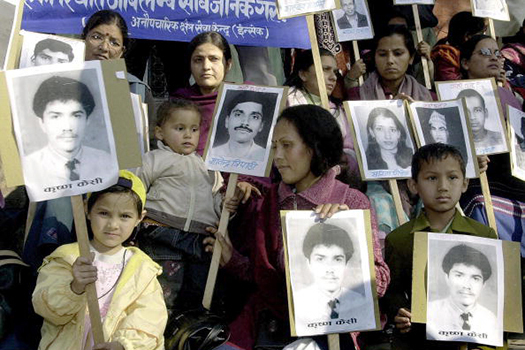
Jan 25, 2020 | News
Recent steps taken by the government are a serious setback on Nepal’s transitional justice process, the ICJ, Amnesty International, Human Rights Watch and TRIAL International said today.
The organizations expressed concern about the decision to appoint commissioners to the two transitional justice commissions without adequate consultations, and without amending the legal framework to make it consistent with international human rights law and Supreme Court of Nepal rulings.
“Nepal’s political leaders know that a transparent process is essential to ensure justice and accountability for egregious rights violations during the conflict, but they keep trying to protect those responsible for the abuses,” said Meenakshi Ganguly, South Asia director at Human Rights Watch. “If the political leadership continues to evade responsibility, they leave little choice but for victims to approach courts outside the country.”
On January 18, 2020, a five-member committee formed by the government to recommend names for commissioners for the Truth and Reconciliation Commission (TRC) and the Commission on the Investigation of Enforced Disappeared Persons (CIEDP) submitted its nominations. The committee sent the names forward despite longstanding demands by victims’ groups and civil society for the government to first amend the transitional justice legal framework to ensure that it complies with Nepal’s international obligations and is responsive to victims’ concerns.
Instead, the Ministry of Law, Justice and Parliamentary Affairs on January 13 hastily convened provincial consultations on the transitional justice laws lasting just three hours, which allowed little time for meaningful participation by victims’ groups and civil society.
“The government’s decision to carry out another rushed and secretive set of consultations fails to give due respect to the long-standing demands of victims and civil society,” said Frederick Rawski, ICJ’s Asia-Pacific Director. “It also makes it very difficult to take seriously the statements of political leaders that they are committed to supporting a victim-centred and human rights compliant process.”
Victims’ groups and human rights organizations have rejected these appointments and consultations, and have reiterated that they will not support a transitional justice process that is opaque, non-consultative, and undermines the victims’ right to truth, justice and reparations.
In addition, in its secretariat meeting earlier this week, the Nepal Communist Party (NCP) nominated Agni Sapkota as the speaker of the Federal Parliament. Sapkota, a member of parliament and the party standing committee, has been accused of responsibility for the abduction and killing of Arjun Lama in 2005 in Kavre. The case is the subject of proceedings including before the Supreme Court of Nepal.
NCP should reconsider Sapkota’s nomination as speaker of the parliament until there is a thorough and independent investigation, the organizations said.
“Nepal authorities should not appoint to high office people that are under investigation for human rights abuses, when they could interfere with that investigation,” said Audrey Oettli, Program Manager at TRIAL International. “Such appointments are yet another illustration of the government’s unwillingness to demonstrate a basic commitment to holding perpetrators of conflict-era rights abuses accountable.”
In March 2008, the Supreme Court directed the police to register a case against Sapkota for abducting and killing Lama and to carry out an investigation. The police did not comply. In 2010, Australia and the US rejected visa applications from Sapkota in light of the allegations of serious human rights violations.
When Sapkota was appointed information communication minister in May 2011, the UN Office of the High Commissioner for Human Rights issued a statement expressing concern, saying that states have a responsibility “to ensure that the name of a person is fully cleared following a thorough investigation before any appointment to a high public office is announced.”
The ICJ, Amnesty International, Human Rights Watch and TRIAL International have repeatedly expressed concern about the transitional justice process. An effective transitional justice system requires strong legal foundations consistent with international law and standards, and the political will to address the demands of victims of the conflict, the organization said.
Concerns raised about the legal framework include: disparities between the definitions of specific crimes under international law and human rights obligations and violations under national, and international law; inadequate provisions to ensure that serious crimes under international law are subject to criminal accountability, including punishment proportionate to the seriousness of the crimes; and a reliance on compensation at the expense of other forms of reparation and remedy for conflict survivors and their families.
The government should amend the the 2014 Transitional Justice Act to make it consistent with the Supreme Court’s rulings and international human rights standards, the groups said. It should initiate a genuine consultative and transparent process for the appointment of commissioners. And it should conduct credible and impartial investigations instead of appointing people accused of conflict-era crimes to high public offices.
“The government and the political parties in Nepal are increasingly showing that they are unwilling and incapable to deliver truth, justice and reparations to the conflict victims domestically,” said Biraj Patnaik, South Asia Director at Amnesty International. “Their signal of impunity will further push the victims and activists to seek justice internationally under universal jurisdiction. Instead of putting those suspected of criminal responsibility into positions of power, the government should bring them to justice in fair trials.”
To download the statement in Nepali, click here.
Contact
- Frederick Rawski, ICJ Asia-Pacific Director, e: frederick.rawski(a)icj.org, +66 644781121
- Biraj Patnaik, Amnesty International, South Asia Director, e: biraj.patnaik(a)amnesty.org, t: +94 716123280
- Meenakshi Ganguly, HRW, South Asia Director, e: gangulm(a)hrw.org
- Audrey Oettli, TRIAL International, Program Manager, e: a.oettli(a)trialinternational.org
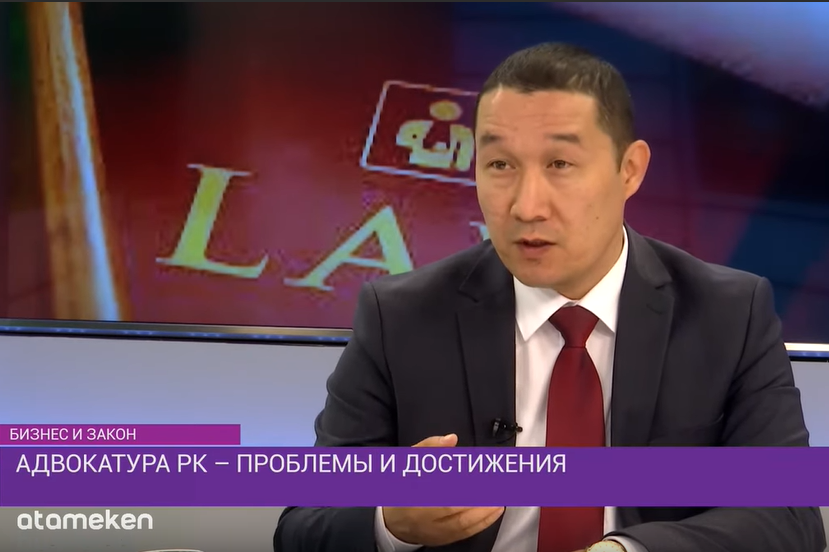
Jan 24, 2020 | News
Today, the ICJ has conducted a trial observation in disbarment proceedings against lawyer Yerlan Gazymzhanov before the Saryarkyn Court of Nur-Sultan.
Erlan Gazymzhanov is facing disbarment following a lawsuit brought by the Ministry of Justice of the Republic of Kazakhstan.
The lawyer is accused of violating court rules by publishing on a social network an archive video from the hearing in a case in which he alleged inappropriate behaviour by the judge.
The case raises issues of the lawyer’s freedom of expression and possible improper interference in his work.
The ICJ will carry out an assessment of the case and its compliance with international standards following its observation of the proceedings.
Another lawyer, Amanzhol Mukhamedyarov is facing a disbarment lawsuit on the same allegations.
Mukhamedyarov’s case will be heard in separate proceedings on 4 February in Esil district court of Nursultan.
Dr Stefan Stobl, a lawyer from Munich (Germany) and a member of the ICJ Section Germany, observed today’s hearing on behalf of the ICJ.
Additional information:
Read ICJ’s trial observation manual
The ICJ has previously expressed concern about increasing restrictions on the independence of lawyers in Kazakhstan:
Kazakhstan: frivolous disbarment proceedings against prominent lawyer Sergey Sizintsev should be immediately dropped, ICJ says
Kazakhstan: ICJ alarmed at government interference in legal profession
Kazakhstan: the ICJ calls to immediately drop prosecution of lawyer Bauyrzhan Azanov
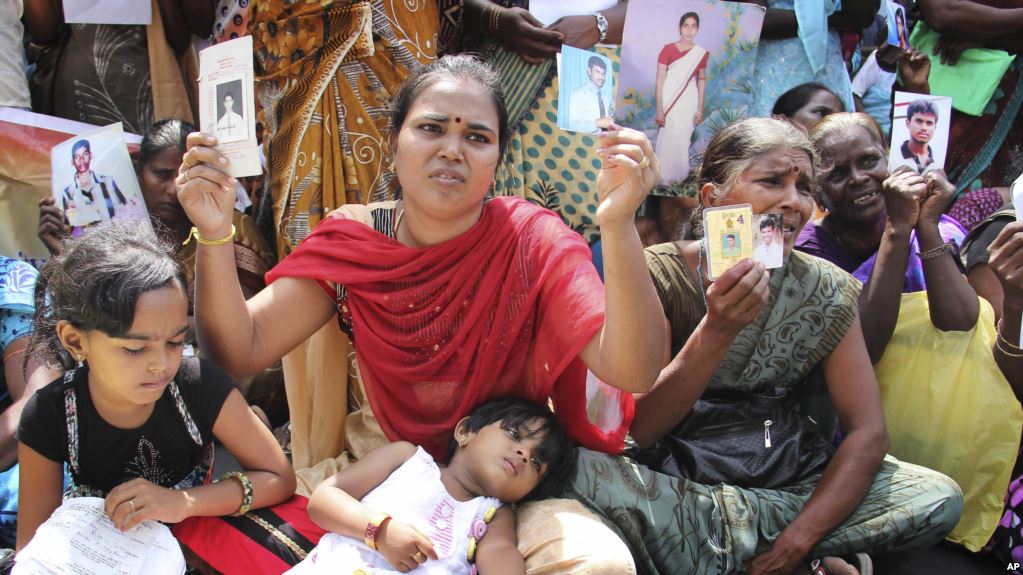
Jan 24, 2020 | News
The ICJ expressed alarm about comments made by Sri Lankan President Gotabaya Rajapaksa which offensively mischaracterized the situation of “missing persons” in Sri Lanka, many of whom have been the victims of the crime of enforced disappearances.
According to a statement released by the President’s office after President Rajapaksa’s meeting with UN Resident Coordinator, Hanaa Singer, on 17 January 2020, the President had “explained that these missing persons are actually dead” and that “most of them had been taken by the LTTE or forcefully conscripted. The families of the missing attest to it. However, they do not know what has become of them and so claim them to be missing.”
“It is appalling to hear such callous declarations from the Office of the President, particularly given that no credible investigations have been conducted into the cases of those who have gone missing during the armed conflict,” said Frederick Rawski, Asia Pacific Director for the International Commission of Jurists.
The fate and whereabouts of some 20,000 people were reportedly unaccounted for in the immediate aftermath of the armed conflict in Sri Lanka. Many of these people are suspected to have been subjected to enforced disappearance, unlawful killings and/or other crimes under international law.
The Report of the UN Secretary-General’s Panel of Experts on Accountability in Sri Lanka (2011) and the reports of the State-led Commissions of Inquiry on Lesson Learnt and Reconciliation (2011), and Presidential Commission of Inquiry into Complaints of Abductions and Disappearances (2015) found that at least some of those who had surrendered to the Sri Lankan military at the end of the war in 2009 remain unaccounted for to date, and that many cases remain unresolved.
According to the same statement, Rajapaksa further informed the UN Resident Coordinator that, “after necessary investigations, steps would be taken to issue a death certificate to these missing persons. Afterwards their families would be given the support they need to continue with their lives.”
Under international law and standards, allegations of enforced disappearances and unlawful killings must be investigated, promptly, thoroughly, impartially. Those responsible must be brought to justice in fair trials, and the victims and their families are entitled to effective remedy and reparation.
“The President’s statement appears to disregard the purpose of the Office of Missing Persons. Any attempt to provide ‘closure’ to the relatives of the missing without following the necessary legal procedure to establish the truth is unacceptable,” said Rawski. “Their families have waited for ten years or longer to find out the fate of their loved ones. The response of the State should be to help facilitate the existing process, not to disrupt or obstruct it,” he added.
The previous government adopted the Office of Missing Persons Act in August 2016 and established the Office of Missing Persons (OMP) in February 2018, in light of its commitments to the UN Human Rights Council under Resolution 30/1. According to Section 13 (1) (a) (ii) of the OMP Act, a certificate of death shall be issued only upon the conclusion of an investigation and the issuing of a report to the relative of such missing person to such effect. However, as an interim measure, the OMP is empowered to facilitate the provision of certificates of absence to family members of a missing person. A certificate of absence legally recognizes that a person is missing and allows the family to conduct transactions as though the person is dead.
The ICJ urges the Government of Sri Lanka to desist from any measures that would derail from the established legal procedure to search and trace the “disappeared” and other missing persons in Sri Lanka. ICJ instead calls upon the Government to support the Office of Missing Persons to speed up the investigation process in establishing the truth, accountability, and reparation.
Contact
Frederick Rawski, ICJ’s Asia Pacific Regional Director, t: +66 2 619 84 77; e: frederick.rawski(a)icj.org
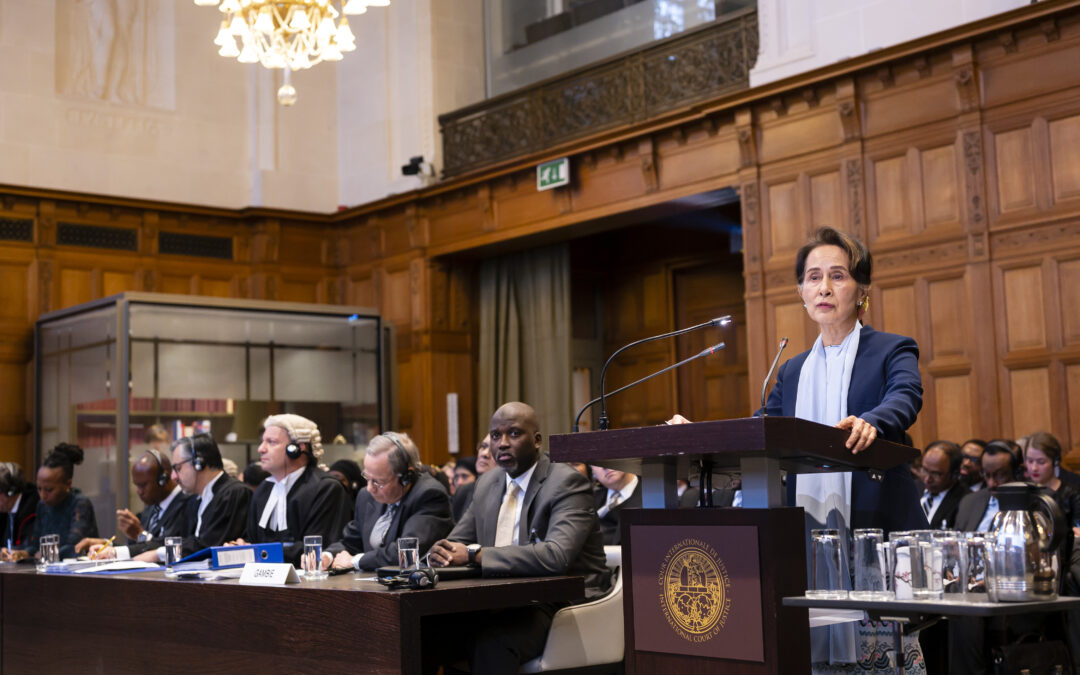
Jan 23, 2020 | News
The ICJ welcomes today’s Order of the International Court of Justice (Court) in the case of The Gambia v Myanmar indicating provisional measures to protect the rights of the persecuted Rohingya minority under the Genocide Convention and calls on Myanmar to implement the Order without delay.
“The Order is a significant step towards justice for the Rohingya as it imposes specific, legally-binding, obligations on Myanmar to take critical steps to protect their rights under the Genocide Convention,” said Sam Zarifi, Secretary General of the International Commission of Jurists, currently in Yangon, Myanmar. “It is now incumbent on the whole international community, including States, civil society and UN agencies, to urge and assist Myanmar to fulfil its obligations under the Order.”
In its Order, delivered orally, the Court found it had prima facie jurisdiction over the case and indicated a series of provisional measures, including that Myanmar must:
- take all measures within its power to prevent the commission of all acts within the scope of the definition of genocide set out in Article II of the Genocide Convention;
- ensure that its military as well as any irregular armed units which may be directed or supported by it, and any organizations or persons which may be subject to its control, direction or influence do not commit acts of genocide, conspiracy to commit genocide, direct and public incitement to commit genocide, attempt to commit genocide, or complicity in genocide;
- take effective measures to prevent the destruction and ensure the preservation of any evidence related to allegations of acts within the scope of Article II of the Genocide Convention; and
- submit a report to the Court on all measures taken to give effect to the Order within four months as from the date of the Order and thereafter every six months until a final decision on the case is rendered by the Court. Every report will be communicated to the Gambia which will then have the opportunity to submit to the Court its comments thereon.
Provisional measures are orders the Court has the power to make aimed at preserving the rights of the Parties to a case pending the final decision of the Court in order to avoid irreparable damage to the rights which are the subject of the dispute, in this case the rights of the Rohingya.
A hearing on the merits of the case will be heard at a later date.
The role of the Court is to settle disputes submitted to it by States in accordance with international law – its role does not extend to determining the criminal responsibility of individuals for perpetrating serious human rights violations.
“As Myanmar is unwilling and unable to conduct investigations and, where appropriate, prosecutions of serious human rights violations domestically which meet international law and standards, the various processes underway around the world directed towards criminal accountability- including the investigation of the International Criminal Court – remain necessary and urgent,” added Zarifi.
In 2018, the International Commission of Jurists issued a baseline study of the obstacles to accountability for serious human rights violations in Myanmar identifying “systematic impunity” within the country as a result of the “lack of accountability of perpetrators of human rights violations; lack of access to effective remedies and reparation for victims; and ongoing challenges with the independence and accountability of justice actors.”
International processes underway around the world directed at criminal accountability for serious human rights violations in the Myanmar situation include:
To download the full statement with background information, click here.
Contacts
Sam Zarifi, ICJ Secretary General, t: +41 79 726 4415; e: sam.zarifi(a)icj.org
Kingsley Abbott, Coordinator of the ICJ’s Global Accountability Initiative, t: +66 94 470 1345; e: kingsley.abbott(a)icj.org
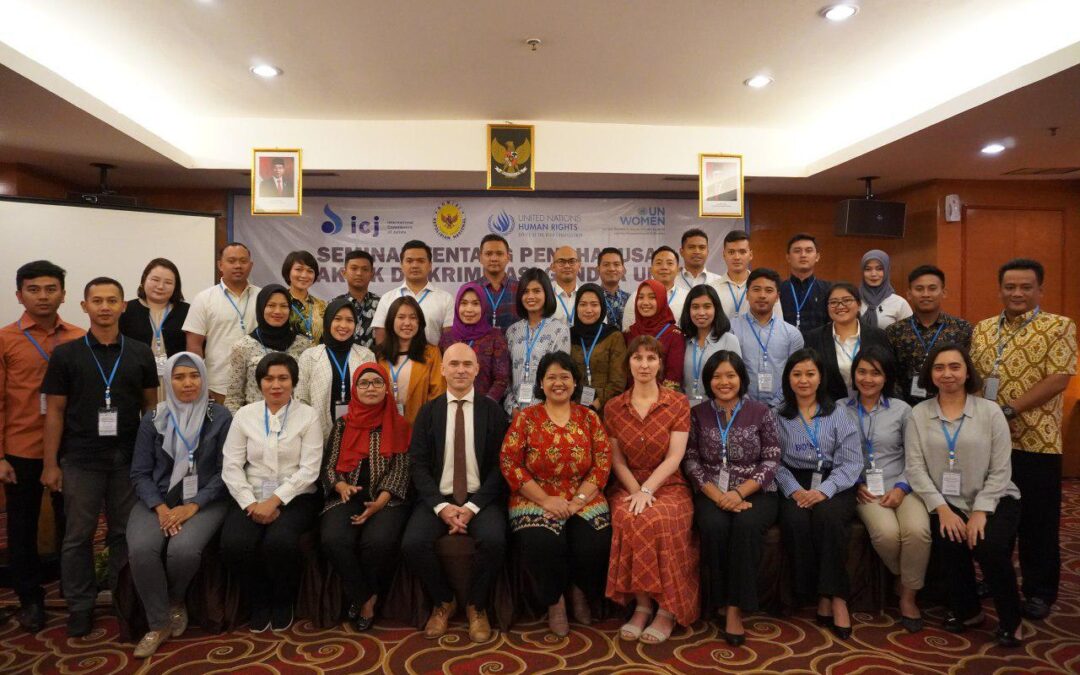
Jan 18, 2020 | Advocacy, News
From 16 to 17 January 2020, the ICJ, in collaboration with the National Police Commission (KOMPOLNAS), UN Women, and the Office of the United Nations High Commissioner for Human Rights (OHCHR) organized a Seminar on Eliminating Gender Discriminatory Practices for the Police.
It was held in Bogor, Indonesia and gathered 30 law enforcement officers from Indonesian provinces that are reported to have the highest rate of incidents of violence against women.
Frederick Rawski, ICJ’s Asia and the Pacific Regional Director, stressed to participants that, “Police officers are the first point of contact for women who try to access justice for violations committed against them. It is important therefore for these officers to be well-trained on gender sensitivity and women’s human rights.”
“Only 40 percent of women speak out on violence, and only 10 percent of these report to the police because they are often blamed for the violence they experience or humiliated by those who should protect them,” added Ms. Doreen Buettner, Programme Specialist on Access to Justice of UN Women.
Indonesia is a State Party to the Convention on Elimination of All Forms of Discrimination Against Women (CEDAW), having ratified it on 13 September 1984. It has established a gender mainstreaming mechanism under Presidential Instruction No. 9 of 2000 on Gender Mainstreaming in National Development, which obliges all government representatives and agencies, including the police, to mainstream gender in their work in order to eliminate gender-based discrimination.
Ms. Poengky Indarti, Commissioner from the National Police Commission (KOMPOLNAS), stressed that “Gender-responsive police training should not a one-time thing, we need to institutionalize the training for it to be sustainable.”
At the seminar, the discussions were aimed at strengthening the understanding of the members of police officers on women’s human rights, and the importance of eliminating gender stereotyping in their work to enhance access to justice for women.
Ms. Siti Aminah, Commissioner of the National Commission of Violence Against Women in Indonesia (Komnas Perempuan) and Professor Meg Garvin, Executive Director of the National Crime Victim Law Institute (NCVLI) and Clinical Professor of Law at the Lewis & Clark Law School facilitated discussions on common gender stereotypes in Indonesia and strategies, protocols and good practice relating to all aspects of responses to incidents of violence against women.
Contact
Ruth Panjaitan, National Legal Advisor for Indonesia, International Commission of Jurists, e: ruthstephani.panjaitan(a)icj.org
Resources
To access pictures from the event, click here.









